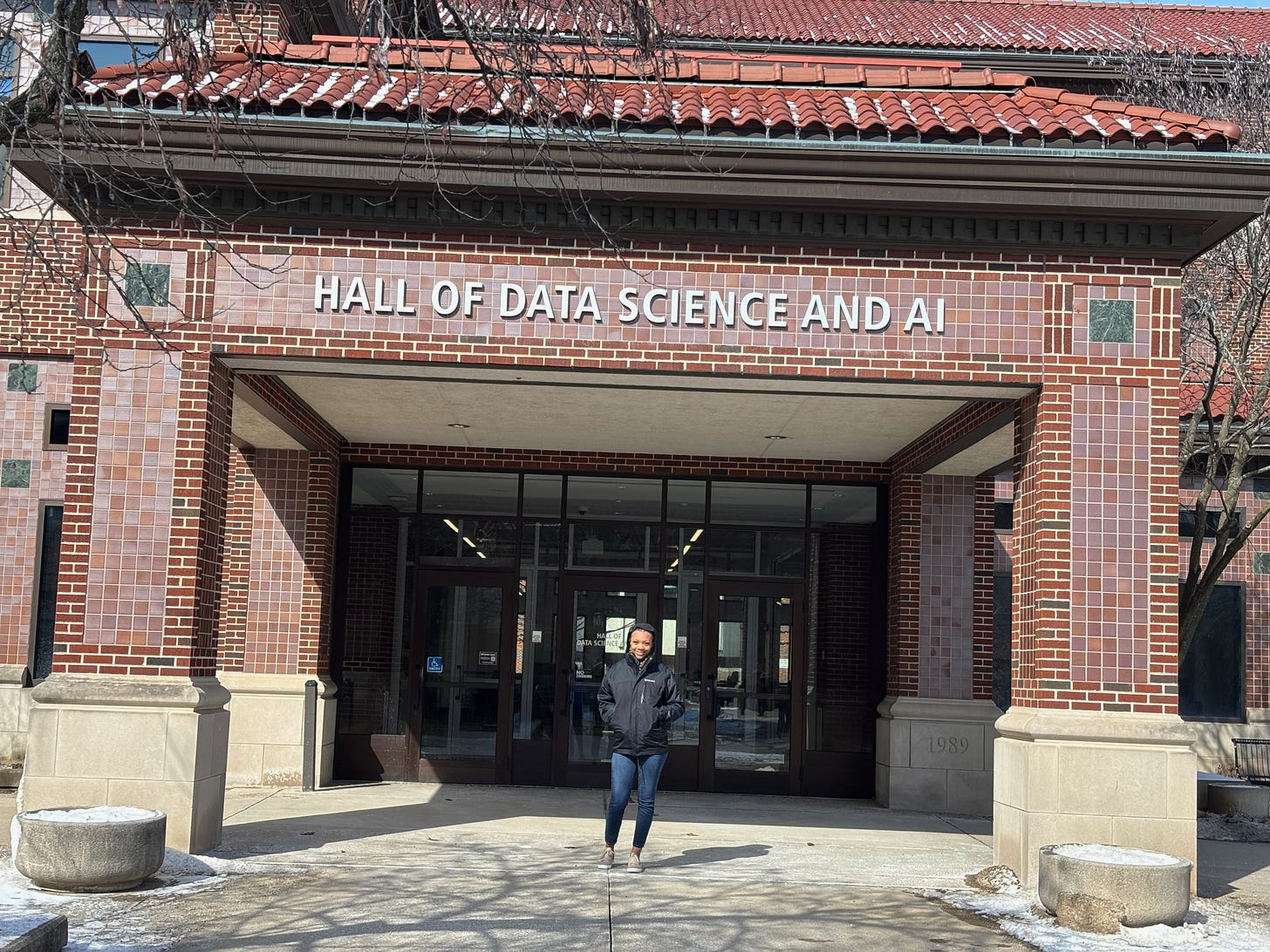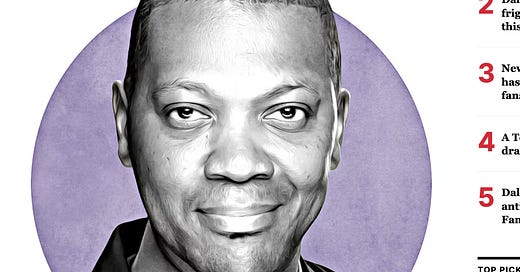Challenge unlocked: The Dallas Morning News' newest columnist
Becoming a syndicated columnist is one step closer.
In college, in addition to the career plans associated with my major, I had three goals:
Become a...
1. Magazine editor,
2. Recognized expert and business owner, and
3. Syndicated columnist
Thanks to The Dallas Morning News, the last of those goals is one step closer to being a reality. As a news and information junkie, I read tens of thousands of words daily.
Now, I'll have the opportunity to thoughtfully opine on the topics that light the fires of my engine—technology, real estate, education, housing, business, community. Most important, and most satisfying, though, is being able to offer analysis that's too often missing from the opinion pages of legacy media outlets. (I’ll have a lot more to say about this in future columns.)
Why columnist?
I was the opinion’s page editor for my college newspaper. It was—as a biopsych major—not a position I longed for. But a guest column I submitted regarding inner city crime and the death penalty (I was and am for it, by the way) received so much attention that the executive editor asked to meet. That meeting let to a column, which led to me being the editor of the entire section. Though I abhorred being responsible for the design and layout of the section, I loved writing a weekly column. Plus, to quote Mel Gibson in Lethal Weapon 1:
“I do it real good, you know.”
Or so I discovered. It was, as a young college student, one the first things I both enjoyed and realized I was good at. But more than sharing my opinion, what I enjoyed most was learning about a topic through my varied readings, and then creating a thoughtful, well-reasoned column. Some made me quite popular on campus; others earned the ire of fellow students. (This is when, without realizing it, I first felt the sting of sharing heretical—i.e., conservative—opinions as a someone who looked like me.)
It’s also when I learned that I didn’t care about other peoples’ opinions if I thought what I was doing was the right thing. I’ve long said that, as one of the few people I know who both reads widely and whose news diet is not confined to one perspective or one party, I would be a valuable addition as a columnist. I now have the chance to test that theory.
Why now?
I’ve had conversations with more than one legacy media outlet over the last several years about me becoming a columnist for them. Usually the sticking point was my position as an elected official. My plans were to reopen those discussions after May 6, when I’m no longer a local elected official. The timeline simply moved up a few months.
Why DMN?
Four years ago a friend challenged my writing for DMN:
“Why write for a liberal news outlet, especially one that unfairly characterizes our community?”
Six words, I said:
“I’m done preaching to the choir.”
First, my political views (on guns, taxes, race, crime, education, immigration, etc.) skew heavily—and primarily—right. And while I certainly don’t agree with how my community is often characterized in the news, I don’t bear responsibility for the opinions shared by an outlet by virtue of writing for them.
However, I’m most interested in writing for a legacy media outlet because I think a broader, middle- to left-leaning audience can benefit from reading the views of members who don’t vote the same as them but who likely share similar values, concerns, goals for the country.
As I’m wont to say, “Let’s focus on what we can all agree on.”
Plus, as I have come to realize, being conservative has come to mean something altogether different from what I take it to mean. So, instead of trying to write to any specific group, I’m writing for the folks who believe the following:
America’s greatest strength is its people. Our best ally is each other, to paraphrase author Scott Galloway. Together, despite our differences, we can overcome any challenge and build a future for all.
From The Dallas Morning News
The staff at TDMN have been fantastic to work with. I’m looking forward to what’s ahead.
I enjoyed these kind words from Commentary Editor Ryan Sanders:
"Smith loves Southlake. He’s committed both to his city and to challenging the status quo. And he’s not afraid to speak his mind. He also loves good opinion journalism.
"When Editorial Page Editor Rudy Bush and I met him for coffee last month, Smith told us about his collection of George Will clippings and his admiration for the late Charles Krauthammer, another stalwart conservative voice from The Washington Post."
Photo of the Week
I visited Indianapolis for the first time last week. My daughter was accepted to Purdue’s Data Science program, so we visited the West Lafayette campus. She loved it.

Perverse incentives dominate modern politics
Yuval Levin, director of social, cultural and constitutional studies at the American Enterprise Institute, was recently interviewed on The Ezra Klein Show: The Breaking of the Constitutional Order, spoke expertly about how the perverse incentives of today’s politics hurts the country.
“I know [members of congress] can look like clowns from a distance, and a few of them are clowns maybe, but they're pretty impressive people, and they're going to do what it takes to succeed. The question is, what does it take to succeed? What is the definition of success that they're operating with?
“I think a lot of that is a function of the kinds of incentives that the political system sets up for them. And in this moment, a lot of the definition of success involves having a prominent place in our political theater, which is a very, very fragmented partisan theater, and looking like you are doing a great job of speaking for the team. So every member wants to be seen as the person who really says that thing that the left doesn't want to hear if you're a Republican member.
“They define success by social media following, by their prominence in the cable news outlets that matter to their older voters. They don't define their success as much by legislative work, by what can you bring home. In a funny way, the media environment they operate in has been both nationalized and fragmented.
“You're not trying to look good on the national news so much as to look good to the particular social media influencer that your most devoted primary voters follow. And that's created a set of incentives that is distant from legislative work. And it's left a lot of members with a sense that investing themselves in their committee work is a waste of time.”
Advice is better than feedback
Ask for advice instead of feedback, says University of Pennsylvania professor Adam M. Grant, who says asking for feedback typically goes one of two ways.
“You could get some helpful takeaways, or the other person may tread too carefully to tell you anything useful, scared of bruising your ego. The latter is more common than most people think, says Grant. “The best way to get people to coach you is, instead of asking for feedback, you seek advice.”
Asking for advice instead of feedback gives you a better chance of getting some helpful suggestions, says Grant.
The epitome of biting off more than you can chew
This Badger vs. porcupine, part of the National History Museum’s Wildlife Photographer of the Year portfolio, is illustrative of the statement “Don’t fight battles you can’t win.”






Congrats my friend. I've been enjoying your thoughts here on ID.